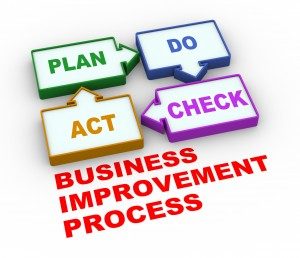Small Business Tips to Increase The Value of Your Company

The value of your business is a measurement of future earnings, assets, and risk. It’s no surprise that healthy companies have higher values in the marketplace. Most business owners focus on profits, as that’s what affords business owners an income; however, the real wealth of a business is in its valuation. The value of the business is the ultimate measure of the financial independence your company will afford you at the time of transfer.
Too many business owners focus singularly on profit and neglect the actions necessary to increase the value of their businesses. All too often this gets overlooked until it’s too late when the business must be transferred out of necessity. The business may transfer at only a fraction of its value had it been properly positioned and prepared or may never transfer at all. The U.S. Department of Commerce estimates that 3.6 million businesses are offered for sale every year. Only 250,000 of these businesses are actually transferred. Of the businesses that do transfer to new owners, 80% are sold at less than 50% of their real value.
The value of a business can vary greatly due to the illiquid nature of the market for private companies; and in part because of the necessary discretion involved in selling a private company. Unlike real estate, owners can’t put up a “for sale” sign and advertise their business. The business would likely suffer if competitors, customers, employees, and vendors learned that your business was for sale. If you follow just some of the techniques in this report, your business will be better positioned and prepared for a transfer whenever the time comes.
Some businesses may take years to prepare and position to reach a satisfactory value; so it is imperative to be as diligent about business valuations as you are about profits. The value of a company is a measurement of earnings potential, assets, enterprise risk, and other factors. It’s no surprise that companies with the greatest profit potential get the highest valuations in the marketplace.
Most owners’ focus on profits, as that’s what affords business owners an income; however, this report focuses on valuations as it usually receives little attention. The valuation of your company is the ultimate measure of how much financial independence your company will give you at the time of transfer. The value of a business can vary greatly due to the illiquid nature of the market for private companies. This is due in part to the necessary discretion involved in selling a private company, limiting the pool of potential buyers. Unlike real estate, owners can’t put up a “for sale” sign and advertise their business. The business would likely suffer if competitors, customers, employees, and vendors learned that your business was for sale. Transferring a business is a process that takes time. The time to start thinking about a business transfer is long before you have any thoughts of actually doing it. The consequence for not doing so can have enormous financial implications. Download the free report to quickly increase the Value of a company 1 to 6 times.